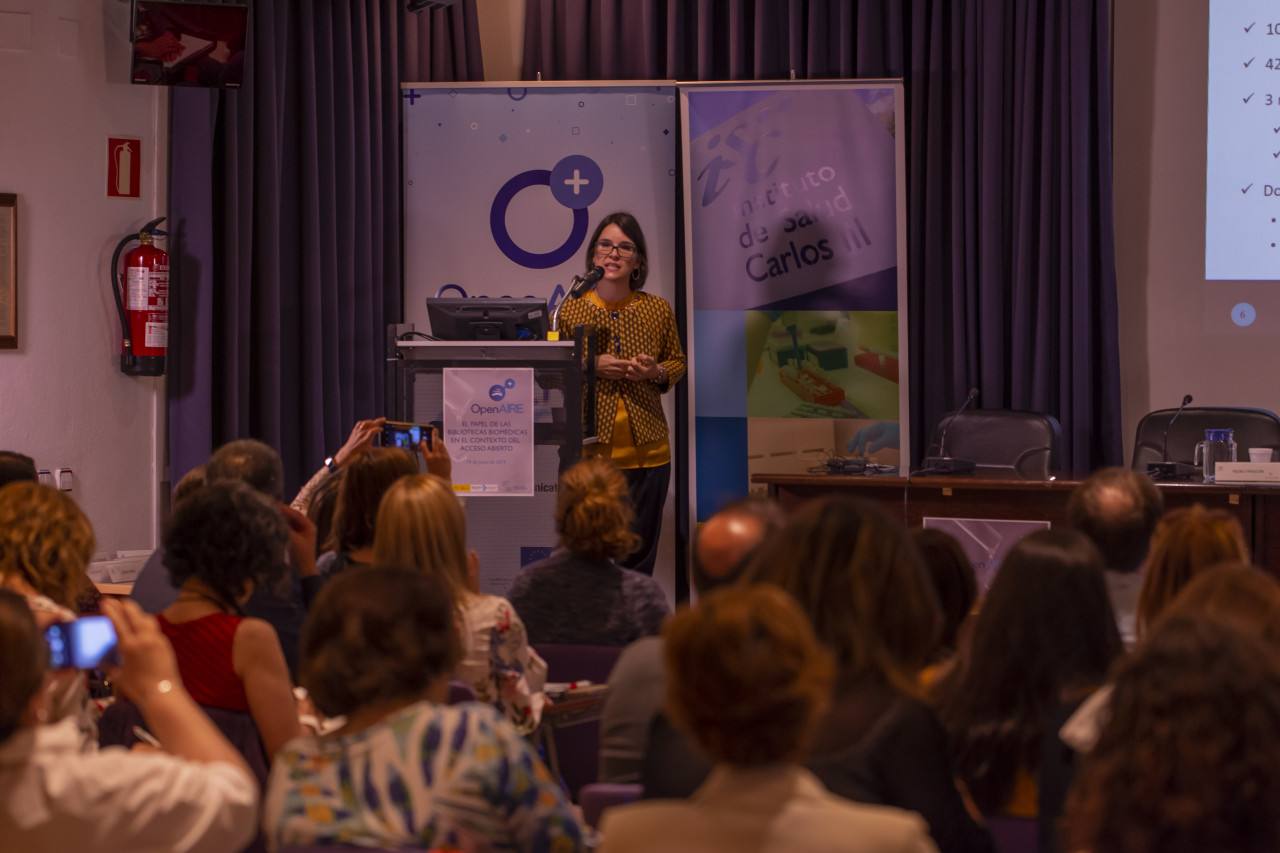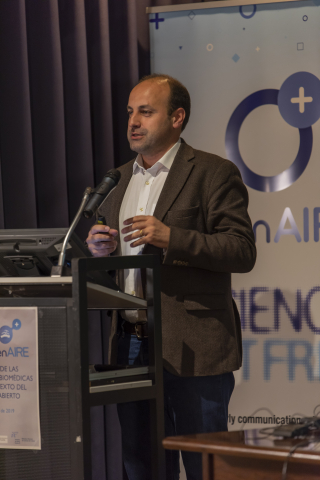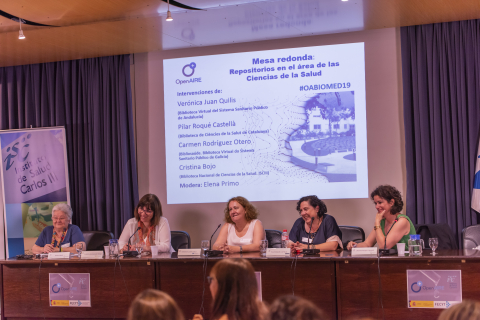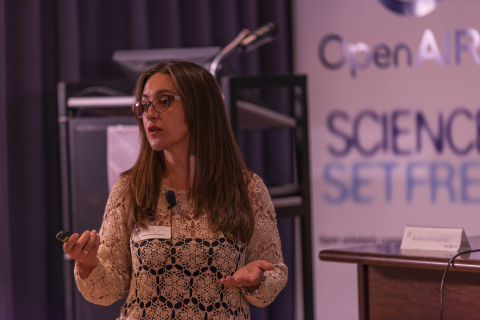National workshop about the role of Biomedical libraries in the context of Open Access (Madrid, Spain)
Biomedical and Health Sciences libraries can be quite diverse and heterogeneous, and sometimes they are managed by librarians working in isolation, without institutional repositories or other open access infrastructure. In order to help biomedical libraries dealing with these challenges, the Spanish Foundation for Science and Technology (FECYT) in collaboration with the National Library of Health Sciences of the Carlos III Health Institute (ISCIII) organized in Madrid this OpenAIRE national workshop under the title 'The role of biomedical libraries in the context of open access'.
The aim of this national event was to contribute to a better understanding of the research funding agencies' open access policies, how to comply with their mandates, and what infrastructures and services are available to the research community. The event took place on June 14, 2019; 135 people attended and another 25 followed it by streaming.
Programme and speakers
The keynote was held by Pedro Príncipe, from the University of Minho, who talked about the OpenAIRE infrastructures, resources and services. He explained the main services offered by OpenAIRE, as well as some of the challenges and new developments of the project, i.e. EXPLORE, which is the Discovery Service and in its Beta version we can search more than 90 million records of open scientific information content. He concluded that the real value of the repositories is in the interconnection of a network of repositories.
The keynote was continued by a round table moderated by Elena Primo, Director of the National Library of Health Sciences, where the 4 repositories in Health Sciences repositories in Spain were represented.
The first one was Verónica Juan, from the Virtual Library of the Public Health System) of Andalusia presenting RISalud http://www.bvsspa.es/newbvsspa/risalud/, followed by Pilar Roqué from the Library of Sciences of the Health of Catalonia presenting Scientia https://scientiasalut.gencat.cat/; then Carmen Rodríguez from the Virtual Library of Public Health System of Galicia, presenting RUNA https://runa.sergas.gal/xmlui/, and finally Cristina Bojo from the National Library of Health Sciences, talking about Repisalud https://repisalud.isciii.es/.
Each of them explained their history, aims and characteristics (altmetrics, thesaurus, etc.), underlining that RISalud has been the first Spanish repository focusing on health, and the first one indexed in Pubmed. Scientia is available in three languages, Catalan, Spanish and English, and has been indexed in OpenDoar and in OpenAire. RUNA includes a wide range of clinical and administrative documents, further than only academic publications, and includes the ICD10 classification in addition to integrating information aimed at citizens and patients. REPISALUD is a multi-institutional repository that also includes a wide variety of digital objects different from scientific articles, as dissemination material or scientific events, among many others; since June it is indexed in OpenAIRE too.
The last part was focused on services and tools to help libraries supporting open access. Alicia Fátima Gómez (FECYT) presented threats and opportunities for libraries facing open access, going through the different activities where libraries can support researchers, as well as considering how open access and new initiatives as Plan S are changing the way libraries will be are managed, under new business models to access information. Finally, Isabel Bernal (CSIC) exposed some general characteristics about research data in the biomedical field, explained their services around research data management, as well as the data and licensing policy on Digital.CSIC datasets.
Links to the programme and the presentations
All the presentations can be found here: https://repisalud.isciii.es/handle/20.500.12105/7782
In addition, the recording of the day can be found in YouTube: https://www.youtube.com/watch?v=Q14fKz3z0fA
Finally, the event had a good repercussion on Twitter, with the hashtag #OABIOMED19
Venue
Escuela Nacional de Sanidad. Pabellón 7. Salón de Actos (Aula Magna Gustavo Pittaluga)
Monforte de Lemos, 5. 28029 Madrid (Spain)
When you subscribe to the blog, we will send you an e-mail when there are new updates on the site so you wouldn't miss them.
About the author
Related Posts

funding from the European
Union's Horizon 2020 Research and
Innovation programme under Grant
Agreement No. 777541.





Comments